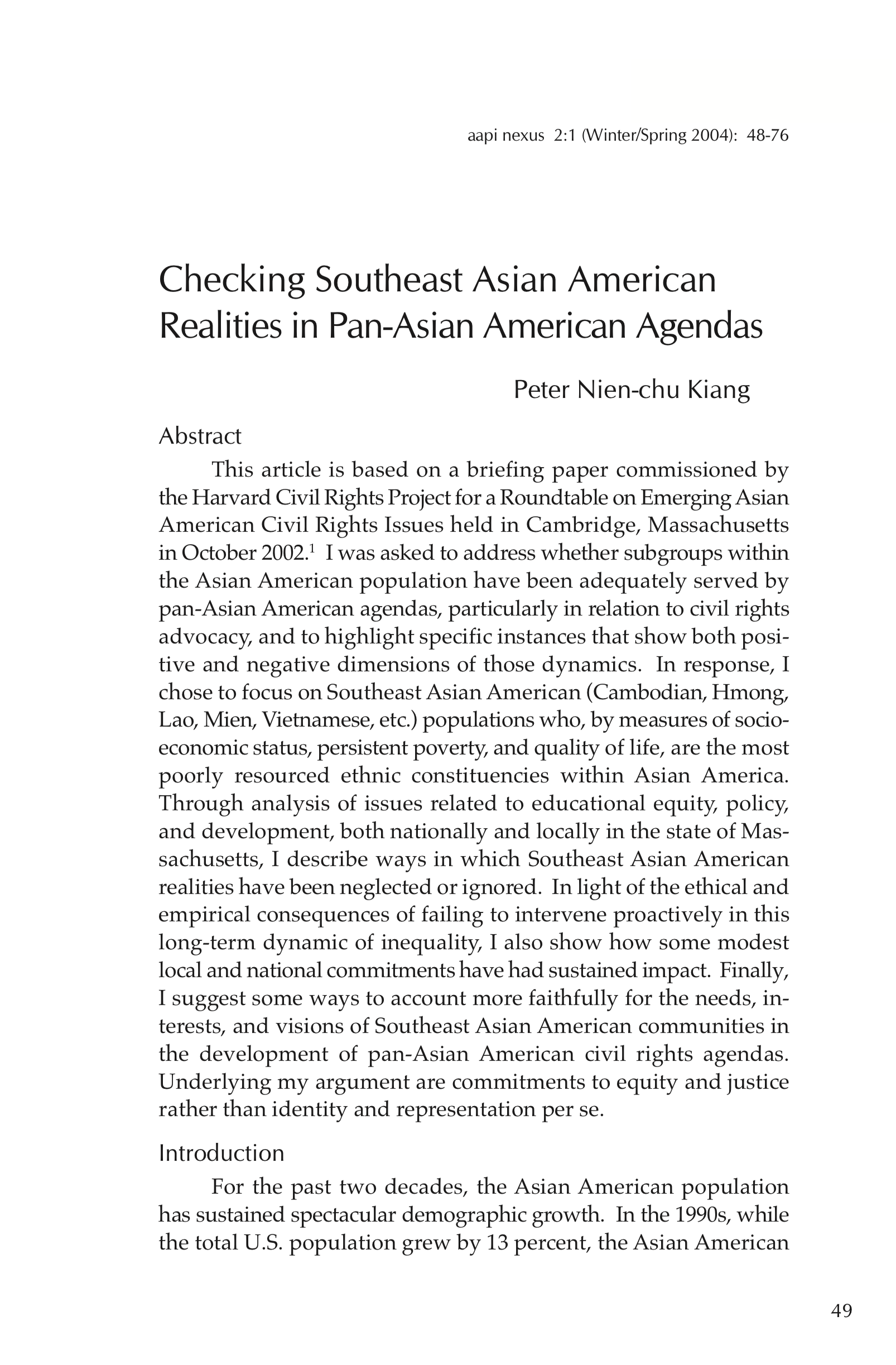“Checking Southeast Asian American Realities in Pan-Asian American Agendas”
Volume 2:1, p. 48 (2004)
by Peter Nien-chu Kiang
ABSTRACT: This article is based on a briefing paper commissioned by the Harvard Civil Rights Project for a Roundtable on Emerging Asian American Civil Rights Issues held in Cambridge, Massachusetts in October 2002. I was asked to address whether subgroups within the Asian American population have been adequately served by pan-Asian American agendas, particularly in relation to civil rights advocacy, and to highlight specific instances that show both positive and negative dimensions of those dynamics. In response, I chose to focus on Southeast Asian American (Cambodian, Hmong, Lao, Mien, Vietnamese, etc.) populations who, by measures of socioeconomic status, persistent poverty, and quality of life, are the most poorly resourced ethnic constituencies within Asian America. Through analysis of issues related to educational equity, policy, and development, both nationally and locally in the state of Massachusetts, I describe ways in which Southeast Asian American realities have been neglected or ignored. In light of the ethical and empirical consequences of failing to intervene proactively in this local and national commitments have had sustained impact. Finally, I suggest some ways to account more faithfully for the needs, interests, and visions of Southeast Asian American communities in the development of pan-Asian American civil rights agendas. Underlying my argument are commitments to equity and justice rather than identity and representation per se.
PREVIEW:

 Download
Download
Peter Nien-chu Kiang (2004) Checking Southeast Asian American Realities in Pan-Asian American Agendas. AAPI Nexus: Policy, Practice and Community: 2004, Vol. 2, No. 1, pp. 48-76.
